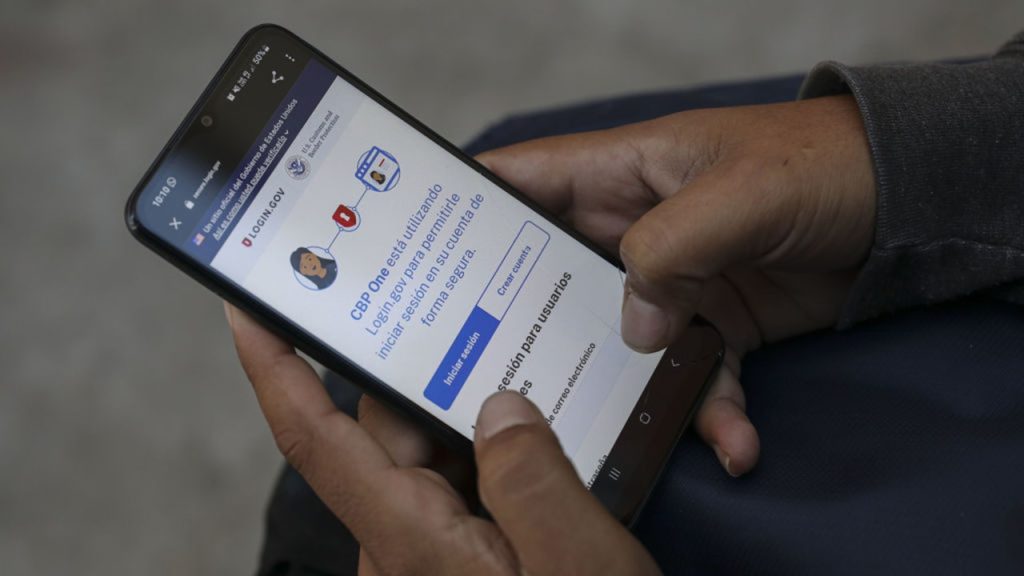A government mobile app called CBP One is at the center of controversy surrounding asylum seekers at the southern border. U.S. Customs and Border Protection (CBP) claims that the app helps increase efficiency and orderliness in processing migrants at points of entry while deterring smugglers from taking advantage of vulnerable migrants. However, Amnesty International has condemned the mandatory use of the app, stating that it violates international human rights and refugee laws by creating additional obstacles for asylum seekers. Despite the Biden administration implementing the app to manage the surge in illegal crossings, it has faced criticism for limiting the way individuals can seek international protection in the United States.
Republican senators have introduced a bill to block migrants from using the CBP One app as identification at TSA checkpoints, further fueling the debate surrounding the app. The legislation highlights concerns about the abuse of the app, particularly in terms of allowing individuals to enter the country without adequate vetting or proper authorization. Critics argue that the app incentivizes migrants to seek asylum and contributes to the ongoing challenges at the border. However, supporters of the app, including CBP officials, argue that it allows border agents to focus on other security issues and discourages illegal crossings by requiring scheduled appointments.
The genesis of the CBP One app dates back to the end of the Trump administration, where it was conceived as a tool to expedite border crossings for individuals with legal entry rights. Despite this original intention, the app has faced backlash from both ends of the political spectrum. Conservative critics argue that it facilitates the admission of undocumented individuals into the country by providing a pathway for asylum seekers. This has led to increased scrutiny from lawmakers and calls for transparency regarding the use and effectiveness of the app in managing migration at the border.
The use of the CBP One app has sparked concerns among human rights organizations, who view it as a restriction on asylum access and a violation of fundamental rights. Amnesty International has been vocal in its opposition to the app, citing the negative impact on individuals seeking protection and refuge in the United States. The organization’s stance aligns with broader criticisms of the app’s implications for migrants and the fairness of the asylum process. As the Biden administration continues to grapple with immigration challenges, the role of the CBP One app in shaping border policies remains a subject of contentious debate.
The House Committee on Homeland Security has raised alarms about the government’s handling of the CBP One app, pointing to what they describe as an abuse of the system leading to an influx of individuals with questionable claims entering the country. Lawmakers have criticized Homeland Security Secretary Alejandro Mayorkas for allegedly misusing the app to facilitate the release of migrants into communities without adequate scrutiny or vetting. These concerns underscore the complexities and ethical dilemmas surrounding the management of migration flows at the border and the role of technology in shaping asylum processes.
Overall, the controversy surrounding the CBP One app reflects broader disagreements and challenges in the immigration debate in the United States. As policymakers, activists, and government officials grapple with the implications of asylum policies and enforcement strategies, the app has emerged as a focal point for criticism and scrutiny. The contrasting perspectives on the app’s impact on security, order, and human rights underscore the complexity of managing migration flows, protecting vulnerable populations, and upholding legal and ethical standards. Moving forward, the future of the CBP One app and its role in shaping immigration policies will continue to be a subject of debate and inquiry among stakeholders and advocates invested in the outcomes of asylum seekers and border security.


